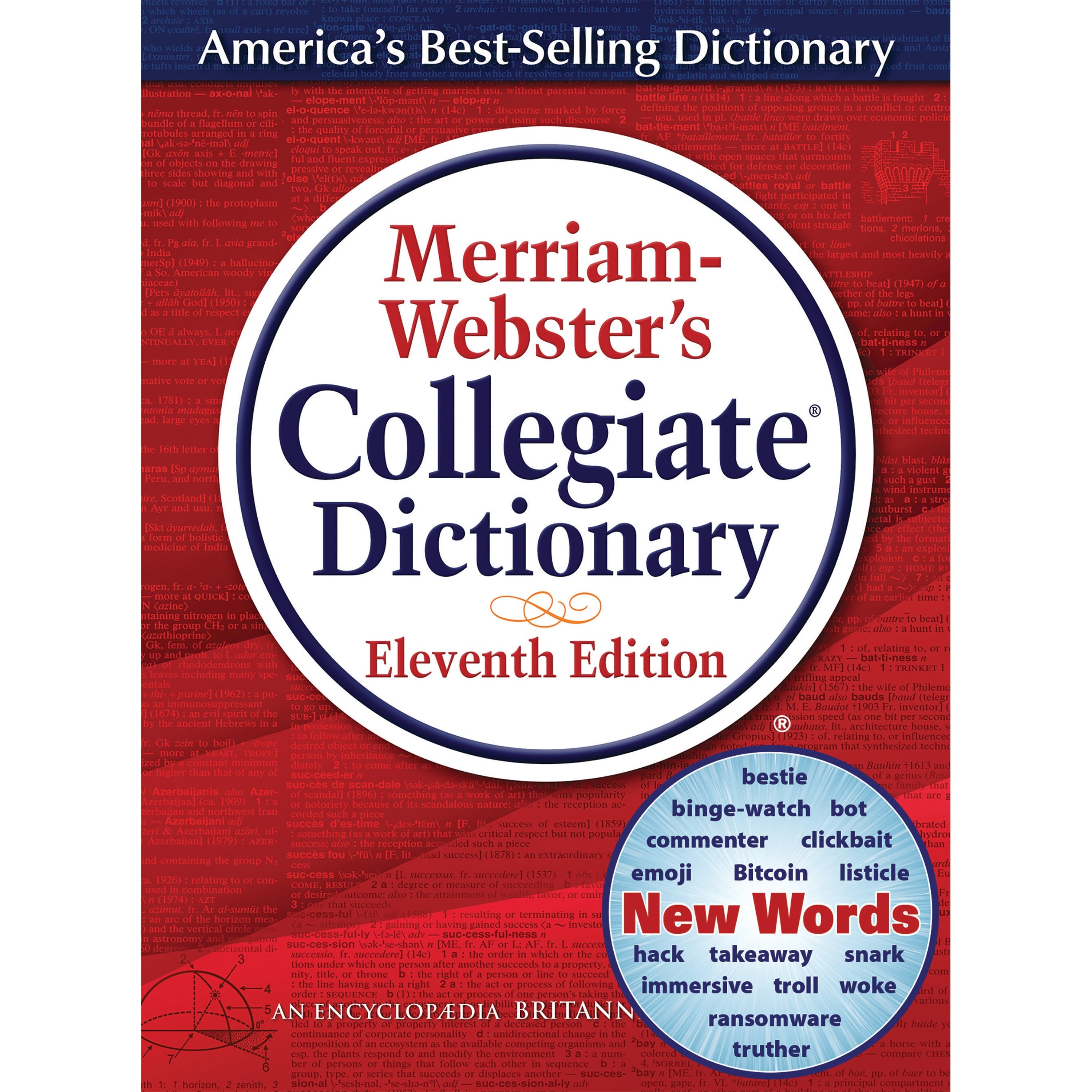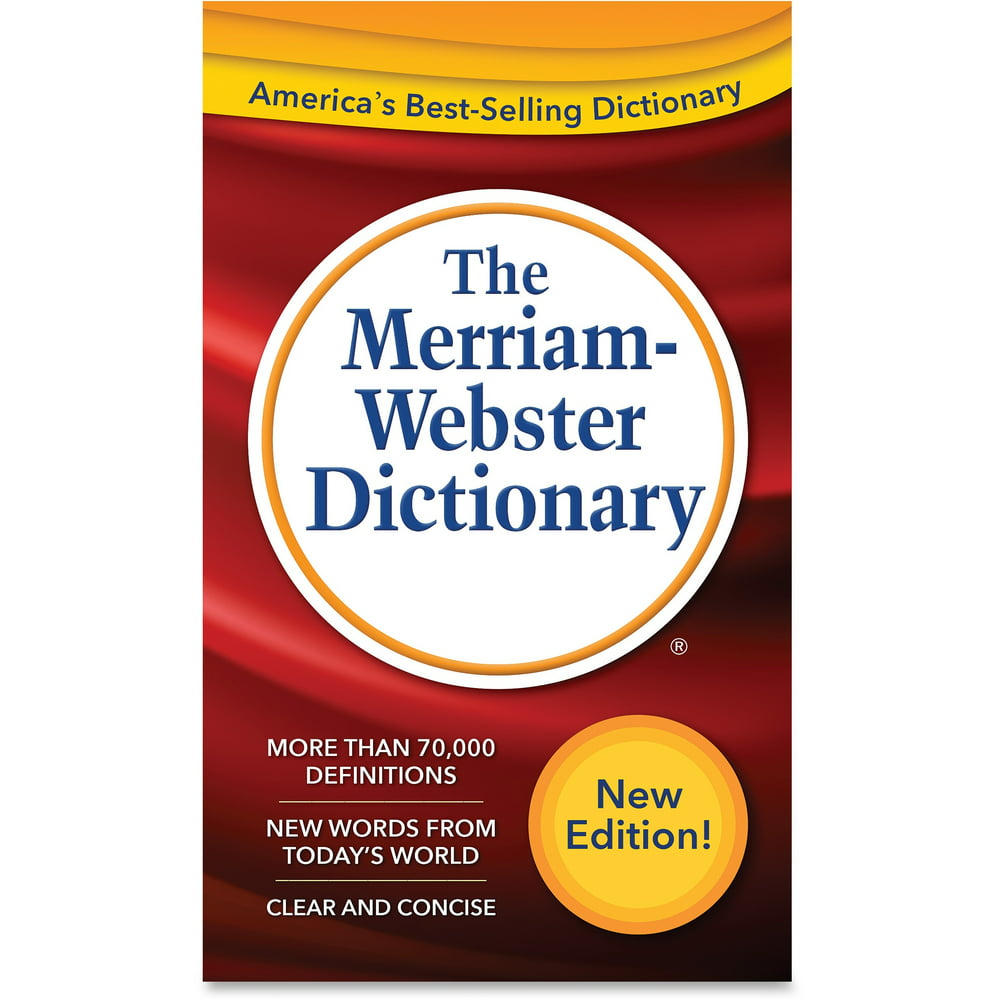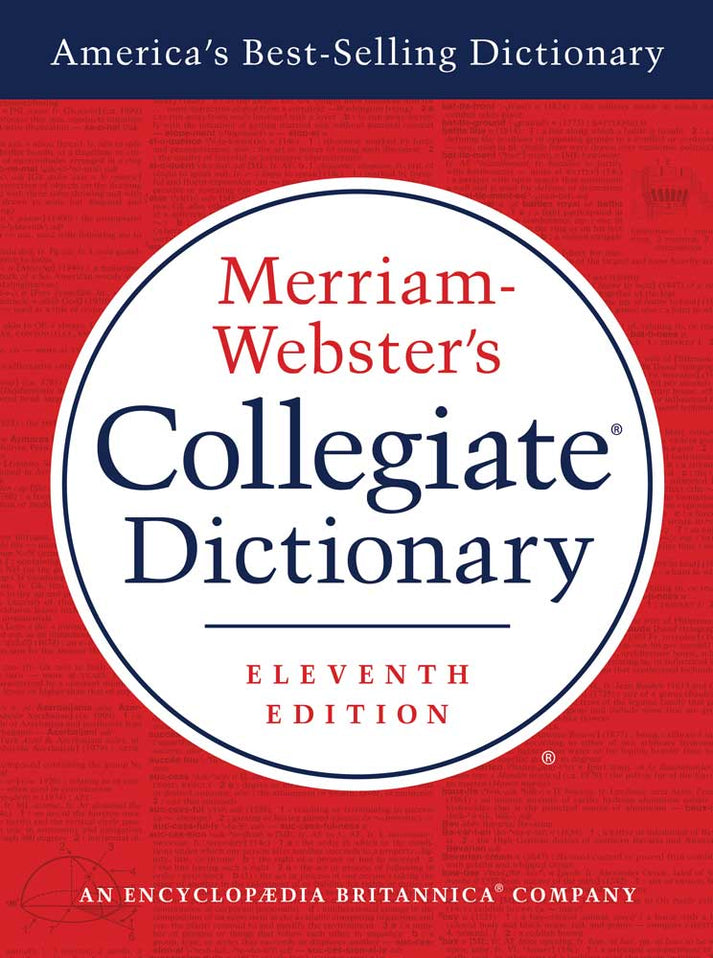Merriam Webster - Your Trusted Word Companion
Table of Contents
- A Friendly Welcome to Merriam Webster
- How Does Merriam Webster Help You Find Just the Right Word?
- What's the Story Behind Merriam Webster's Words?
- Beyond Simple Meanings - Fun with Merriam Webster
- Is Merriam Webster Your Go-To Grammar and Usage Coach?
- Connecting with Merriam Webster - Beyond the Page
- Winning Word Games with Merriam Webster's Smart Tools
- What Else Can You Discover with Merriam Webster?
A Friendly Welcome to Merriam Webster
Have you ever stopped to think about how words work? It's pretty amazing, isn't it? Words are how we share our thoughts, tell stories, and learn new things. For many of us, finding just the right word means turning to a place we trust. That place, for a lot of people who speak American English, is Merriam Webster. It's a name that really stands for knowing about words.
This well-known name in language has been helping people for a long time. It helps you get to know where words come from. You can also figure out how to use them in a sentence. It's a place where you can find other words that mean the same thing, too, which is really helpful sometimes. So, it's almost like a guide for your daily word adventures, you know?
Whether you are trying to write something important or just curious about a new phrase, Merriam Webster is there. It offers a lot more than just simple word explanations. You can play games, test your word knowledge, and even get help with tricky grammar bits. It's a pretty complete spot for all things related to words, as a matter of fact.
How Does Merriam Webster Help You Find Just the Right Word?
Finding the perfect word can sometimes feel like a bit of a hunt. You might have an idea in your head but just can't quite put your finger on the exact word. That's where Merriam Webster really steps in to help. It's a place where you can learn about words like "dictionary" itself, getting to know its background and how people use it, you know?
It's considered a very trusted place for information about American English. This means you can count on what you find there. You can look up a word and see its beginnings, how it's used, and even find other words that are similar. That is pretty neat, if you ask me.
Say you are looking for other ways to say something. Merriam Webster has a special way of sorting things. It helps you find the word you need quickly. This system lets you look through millions of words that are alike or mean the same thing. So, you can pick the one that fits just right, which is really useful.
For instance, if you are wondering about the word "thesaurus," you can learn about it there. You'll find out it's a book of words that are similar. It can also be a list of related terms used for putting information in order or finding it later. It's all there, waiting for you to look it up, you know?
And it's not just about finding words. You can also get help with how to say them. The site gives tips on how words are used. It also offers advice on grammar. These things really help set a good standard for how we use language. So, you can feel pretty confident with what you learn there, honestly.
Sometimes you might just need a quick meaning. Merriam Webster lets you find explanations, words that are alike, and words that are opposites. You can also see how words are used in sentences. They even have a "word of the day" feature, which is kind of fun, you know?
What's the Story Behind Merriam Webster's Words?
Every big name has a past, and Merriam Webster is no different. It has a pretty interesting story about how it became such a known name in language. You can find out how this company got the permission to use Noah Webster's word book. You can also see how it changed over time. This history is quite a bit of what makes it special, actually.
The name "Webster" itself has a long history with American language. Knowing this background helps you appreciate the deep roots of the resource. It shows how much care has gone into building up this collection of words. So, it's not just a random collection, you know?
Sometimes, you might come across a word that seems a bit old-fashioned or unusual. Take the word "wherewithal," for example. Merriam Webster lets you learn its meaning. You can also discover its story and some interesting facts about it. This helps bring older words back to life for you, in a way.
It's pretty cool to see how words have changed their meanings or stayed the same over the years. The resource explains the background of many words. It shows how they are used today. It also gives you examples of how to put them into sentences. This helps you get a better sense of how language works, basically.
You can also look up how words are said. This is a very helpful feature. It means you can be sure you are speaking words correctly. Knowing the background of a word and how to say it properly gives you more confidence when you use it. So, it's about being sure of your words, you know?
Beyond Simple Meanings - Fun with Merriam Webster
Learning about words doesn't have to be boring, and Merriam Webster really gets that. They offer lots of ways to make it fun. You can give yourself a fun test with many word games. There are puzzles, crosswords, and quizzes available. They add new things every single day, so there's always something fresh to try, you know?
These games are a great way to build up your word knowledge without even realizing it. You are just playing, but you are also getting better with words. It's a pretty smart way to learn, honestly. It keeps your brain active and makes you think about language in new ways.
For example, you can find the meaning of "dictionary definition" there. Then, you can learn how to use it the right way. This helps you understand what a word means in a very clear sense. It's about getting to the heart of what words truly say, which is kind of important.
They even have a game where you get 15 seconds to answer each question. The quicker you answer, the better your score will be. This makes it a bit exciting and keeps you on your toes. It's a good way to challenge yourself and see how fast you can think with words, you know?
You can also find explanations for popular slang words. They also cover trending words, common sayings, and even emojis. This keeps you up to date with how language is changing all the time. So, you can stay current with what people are saying, which is pretty cool.
There are also fun word games that you can play. These are just for enjoyment, but they also help you get more familiar with words. It's a good way to pass the time and feel good about your word skills. That is something pretty nice, I think.
Is Merriam Webster Your Go-To Grammar and Usage Coach?
Sometimes, figuring out grammar rules can feel a little tricky. It's like there are so many things to remember, right? Merriam Webster actually has a special guide for grammar. This guide helps you with words that people often mix up. It also gives advice on how to use words correctly, which is really helpful.
You can get tips on how to use punctuation marks the right way. This helps your writing be clear and easy to read. It's pretty important for getting your message across. So, you can write with more confidence, you know?
The guide also covers rules for how to spell words. It also helps with how to say them out loud. Knowing these things makes you a better communicator. It's about being precise with your language, which is kind of a big deal.
For example, if you're wondering about the word "doppelgänger," Merriam Webster explains it. It tells you that the meaning is "double." Then, it shows you how to use "doppelgänger" in a sentence. This makes learning new or unusual words much simpler, in a way.
They even have examples of words used in real-life situations. Like the sentence about "the duck touched down on the surface of Raymond James Stadium just minutes before the Bucs scored their own touchdown." This kind of example helps you see how words work in a natural setting. It's pretty practical, actually.
So, if you ever feel a bit unsure about a grammar rule or how to use a certain word, Merriam Webster can be your helpful guide. It's there to clear things up and make language feel less confusing. That is definitely a good thing to have around, you know?
Connecting with Merriam Webster - Beyond the Page
Merriam Webster isn't just about printed books or a website anymore. They really understand that people get their information in many different ways these days. So, you can find their content in other forms, too. It's pretty convenient, honestly.
They offer their insights as a podcast. This means you can listen to word discussions while you are doing other things. It's a good way to learn new things when you are on the go. So, you can fit learning into your busy day, which is nice.
You can also sign up for their newsletter. This brings word facts and language tips right to your email inbox. It's a simple way to keep up with new words and interesting language tidbits. You get a little bit of learning delivered to you regularly, you know?
And yes, they are on the best social networks, too. This means you can connect with them where you already spend your time online. You can see their word of the day, fun facts, and language discussions. It's a good way to get quick bits of word wisdom throughout your day, you know?
This wide reach shows that Merriam Webster really wants to be where people are. They want to make language knowledge easy to get for everyone. It's about being accessible and helpful, which is kind of what you want from a word source.
They are pretty popular, too. The app, for example, is listed as #51 in reference materials. It has a very good rating of 4.8 stars from nearly 300,000 people. This shows that a lot of people find it really useful and reliable. So, it's clear they are doing something right, basically.
Winning Word Games with Merriam Webster's Smart Tools
Do you enjoy word games like Scrabble or crosswords? Merriam Webster has some pretty smart tools that can give you an edge. Their word finder is designed to help you win. It's like having a secret helper for those tricky moments in a game, you know?
You can search for words in many different ways. You can look for words that start with a certain letter. You can also find words that end with a specific letter. Or, you can even search for words that have any combination of letters you choose. This flexibility is really helpful for figuring out puzzles, honestly.
The tool lets you use wildcards, too. This is great when you have some letters but need to fill in the blanks. You can also look through word lists. It helps with things like bingo stems and hook words. These are all pretty useful for getting a higher score in your games, you know?
Remember that special way of sorting words we talked about earlier? That system also helps you find words for games quickly. It looks through millions of similar words. This means you can find the best option for your game in a flash. So, you can make your move without losing too much time, which is pretty important in some games.
For instance, if you are looking for other words that mean the same thing, or words that are opposites, the tool helps with that too. It's not just about finding words, but finding the *right* words for your game situation. That is definitely a plus, I think.
It helps you get a good sense of how words fit together. You can see how they are used in example sentences. This makes you a more skilled word player. So, you can feel more confident when you play, which is kind of the goal, right?
What Else Can You Discover with Merriam Webster?
Merriam Webster is a lot more than just a place to look up basic words. It offers a wide range of things to explore for anyone interested in language. You can find out the meaning of words, how to say them, and where they came from. You can also get other words that are similar, which is pretty complete, you know?
If you're ever thinking, "I need a word that means this, but also one that means the opposite," Merriam Webster has you covered. They have sections specifically for words that are alike and words that are not alike. It's very easy to switch between these two kinds of searches. So, you can find exactly what you need, quickly.
The meaning of "thesaurus" itself is explained very well. It's described as a book of words or a book with information about a specific area or set of ideas. It's also a book of words and their similar terms. This helps you understand its purpose clearly, which is kind of important for using it right.
They also have features that help you point to specific things. For instance, "an arrow points to the specific thing to be named." This helps with visual learning and understanding. It's about making connections between words and the things they represent, in a way.
You can also learn about words that are currently popular or trending. This includes slang terms, common phrases, and even emojis. It keeps you connected to how language is used in everyday conversation. So, you can stay current with how people talk, which is very helpful.
Overall, Merriam Webster provides a very helpful and complete set of tools for anyone who uses words. It helps you understand where words come from, how they are used, and what they mean. It also offers fun ways to learn and test your word knowledge. You can find everything from simple definitions to complex grammar advice. It's a place where you can explore language in many different ways, basically.

Merriam-Webster, MER8095, 11th Edition Collegiate Dictionary, 1 Each

Merriam-Webster, MER2956, Dictionary, 1 Each - Walmart.com - Walmart.com

Merriam-Webster's Collegiate Dictionary, Eleventh Edition – Merriam